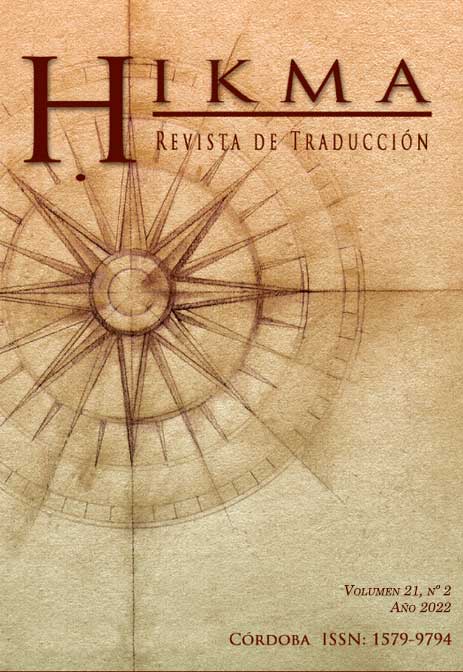Are we teaching what they need? Going beyond employability in Translation Studies
Main Article Content
Abstract
As lecturers and researchers in translation and interpreting, we are aware of the need to design curricula so that students are well equipped, and able to respond to the requirements of modern society. In the world today, there is an evident gap between what is actually taught in higher education and what should be taught to meet student needs. Even though various studies have already focused on the impact of constructs, such as self-regulation, empathy, or creativity, on performance quality, there is still a long way to go. In order to bridge this gap and highlight the role of the university as a transformational agent, our study uses LifeComp, the European framework for the personal, social, and learning to learn key competence. The objective of this research was firstly to discover the transversal competences that are most highly valued by employers in the language industry sector; and secondly, to identify the competences that need more attention in curricula. For this purpose, a questionnaire-based study was designed and administered to translation companies based in Spain. The results obtained indicate that these competences are necessary to foster employability as well as real wealth creation in a lifelong learning context. This study is part of a broader project within the LifeComp framework, in which a competence-based psycho-educational intervention was designed and is now integrated in the translation and interpreting degree programme at the University of Granada (Spain).
Keywords: Competence-based learning, LifeComp, Curriculum design, Higher education, Employability
Downloads
Article Details

This work is licensed under a Creative Commons Attribution-NonCommercial-ShareAlike 4.0 International License.
Authors who publish with this journal agree to the following terms:
1. Authors retain copyright and grant the journal right of first publication with the work simultaneously licensed under a Creative Commons Attribution License that allows others to share the work with an acknowledgement of the work's authorship and initial publication in this journal.
2. Authors are able to enter into separate, additional contractual arrangements for the non-exclusive distribution of the journal's published version of the work (e.g., post it to an institutional repository or publish it in a book), with an acknowledgement of its initial publication in this journal.
3. Authors are permitted and encouraged to post their work online (e.g., in institutional repositories or on their website) prior to and during the submission process, as it can lead to productive exchanges, as well as earlier and greater citation of published work (See The Effect of Open Access).

